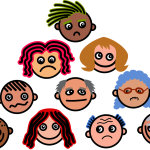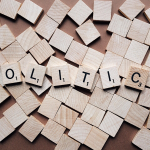Here's the premise: social justice and equitable care increasingly require that those individuals providing your healthcare look like you and share your lived experience. To that end, medical schools have fashioned (or refashioned) their mission statements to explicitly call for diversity in their student bodies. But as a new study shows, words and intentions are not sufficient.
racism
Mosquito magnet
Undercover journalism
Daily Ice cream reduces heart disease
How Madison Avenue taught us to consume healthcare
On the heels of a new survey, public health experts say partisan politics crippled America's pandemic response. At the same time, they want federal agencies like the FDA and CDC to tackle incendiary political issues including racism, gun violence and climate change. Trying to solve these partisan problems won't improve the credibility of the public health establishment.
Medscape is a website focused on those working in healthcare. They recently ran a survey on some ethical dilemmas facing physicians.
The foundation of medical research, which is considered the gold standard, is the Randomized Controlled Trial when individuals are matched with others, and then randomized to one treatment or another. While the beauty of an RCT lies in its process of deliberate randomness, very little attention has been paid to the integrity of its building blocks: categories. It's time to take a more in-depth look.
ACSH, among others, has been criticized as “racist” for using the “Wuhan virus” early in the pandemic, before COVID-19 became the universal descriptor. We were using a description based on location, like Lyme Disease, from Lyme, Connecticut, not a racial description.
Race, age and other demographic factors are commonly controlled in epidemiology studies. It makes no sense to compare one group to another group if researchers do not bother to control for confounders – that is, factors like race or age that can cause researchers to draw the wrong conclusion.
People prefer to ignore scientific reality in favor of politically correct myths. Specifically, we incorrectly interpret (positive) statements that describe the world as it is to be (normative) statements that prescribe the world as it ought to be. This confusion impedes scientific progress.





